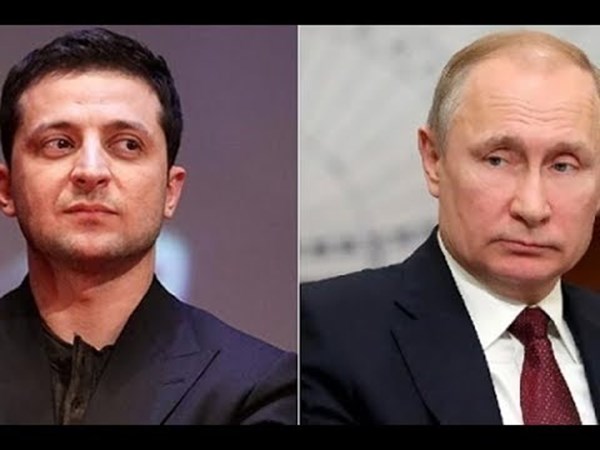Zelensky and Putin discuss gas supplies to Ukraine
Russian President Vladimir Putin discussed problems with gas supplies and the continuation of gas transit through Ukraine with Ukrainian President Volodymyr Zelensky.
During the conversation, "gas issues were discussed in detail, including issues of gas transit's continuation and resumption of direct Russian gas supplies to Ukraine," reads the statement of the Kremlin's press service.
The office of the Ukrainian President, in turn, reported on its Facebook page that the parties "also touched upon the issue of gas negotiations in the trilateral Ukraine-Russia-EU format."
Moscow reported that the conversation between the two presidents took place at the initiative of the Ukrainian side, "considering the Normandy Four Summit scheduled for December 9, 2019, in Paris."
Russian President Vladimir Putin said previously that Moscow is prepared to sign a gas contract with Kyiv if Ukraine implements European legislation by the end of the year.
Last week the National Bank of Ukraine warned that the country’s direct losses from the reduced transit of Russian gas will be 0.6% and 0.9% of the GDP in 2020 and 2021 respectively. “The reduction will lead not only to a direct loss of currency earnings but will create risks for the activity of related sectors of the economy, and the meeting of Ukraine’s own gas needs in general,” the National Bank observed.
Ukraine currently earns roughly $3 billion per year from gas transit.
Analysts from the Institute of Natural Monopolies Research (IPEM) believe that Russia will not be able to avoid gas transit through Ukraine if it hopes to meet Europe’s demand for the “blue fuel” by 2035. Fully avoiding transit through Ukraine will only be possible if there is a drastic decline in the amount of Russian gas piped to the European market.
In their calculations, the experts at IPEM factored in the capacities of the already operational pipelines – Nord Stream 1 along the bottom of the Baltic Sea, the Yamal-Europe pipeline through Belarus and Poland, Blue Stream along the bottom of the Black Sea to Turkey, a pipeline to Finland, the already built but not yet commissioned Turkish Stream (which is expected to begin transport by the end of the year), as well as Nord Stream 2 (which is not expected to start operating before 2020).
